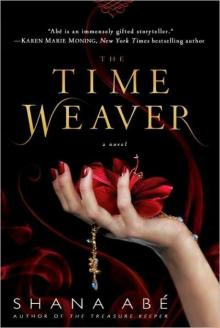The Deepest Night Read online
Page 8
I miss you, too.
Chapter 10
Play a game with me. Imagine your most perfect home. Imagine everything you could ever dream for it, anything at all. It’s going to be modern and expensive—because you’re filthy rich—polished and fancy, all imported marble and mahogany and stained glass and hand-stamped copper trimming. It’ll be wired for electricity in every chamber, even the servants’ quarters. Its gardens will be tiered and grandiose, its motor stable as cavernous as a cathedral. It will be as huge as you could hope it to be, almost more rooms than you can count, with spires of limestone and wings that go on and on. It will dominate everything around it, and you yourself will have personally designed and presided over every square inch.
Oh, yes. One more thing: Imagine that you, the designer, are insane.
And that war comes before it’s finished.
And all the men who used to be working on it are gone, dying in trenches in countries far away, so what there is of your dream sits half done and rotting through the seasons.
Tranquility at Idylling. My happy home for the next three months.
When I called it a monstrosity before, I wasn’t exaggerating.
I climbed slowly out of the motorcar Armand had sent to Iverson for me, my suitcase clutched in both hands.
“No, I’ll keep it,” I said to the chauffeur when he tried to take it from me. He tugged at his cap and backed away to the front of the car again.
My feet seemed heavier than usual, dragging their way along the crushed-shell drive that left a pinkish residue on my boots. It was close to twilight, with a brisk evening wind that plastered my skirt to my legs and skittered through the grit. Tranquility was an elaborate sandcastle silhouette against the deepening blue.
Tranquility’s butler, who always held his mouth in a flat, folded way that suggested he had something scandalous to say but never would, awaited me on the steps leading to the front doors.
“Miss,” he greeted me, with a bow. “Lord Armand is in the west drawing room. Shall I take your case? … Are you certain? Very well, miss. This way, please.”
The atrium was an elegant oval of space, with slick checkerboard tiles and smooth plastered walls and a curving, serpentine grand staircase that led to nowhere, because there was no top-story landing built for it yet. Leaping from that uppermost stair could possibly land you on the giant glass-and-wrought-iron chandelier suspended from a chain (it resembled a series of connected lanterns, or perhaps a bat), but then you’d still have a long drop back to the floor.
I’d seen it all before, but couldn’t help gazing up and around until I felt a little dizzy. I wondered, briefly, if the maids had to dust and mop all the way to the top of the staircase, even though it could never be used. (They did.)
The butler led me to a door on the right, opened it, and indicated I should walk past him into the chamber.
“Miss Eleanore Jones, my lord.”
“Thank you, Matthews.”
Three people were seated before a low table, each holding a drink. One of them was Armand, but I didn’t know the other two: a sandy-haired bloke about his age in a khaki officer’s uniform, and an elderly woman in a beaded frock and long gloves and a colossal diamond-and-topaz brooch. Light from the sconces danced along the brooch, gold and white and yellow. I marveled that it didn’t blind her.
Armand and the officer put down their glasses and stood. The woman didn’t bother to move other than to aim at me a scowling look.
“Who is this person?” she demanded, querulous.
“Miss Jones, Aunt Lottie,” replied the officer, speaking very loudly. “The girl we’ve been expecting.”
“She is holding up dinner,” the woman grumbled, sipping from her glass.
“I—”
I had been about to recite my standard apology to people of power, then cut myself short. I reckoned I’d done enough begging of pardons to last me some while, and anyway, I hadn’t even known about the bloody dinner.
“I hope I am only fashionably late,” I said instead, which still seemed a bit too groveling, considering, but the words were out and there was no calling them back.
Armand smiled. “Not even that. Please, join us.”
I looked around, set my suitcase on the floor by a chaise longue covered in salmon chintz, and forced myself forward once again.
This room was one of the finished ones, apparently, because I didn’t see any of the odd scaffolding or pallets of tools that littered the rest of the manor. In fact, it almost looked normal, with bronze-colored drapery and slender teakwood stands supporting ferns and busts of carved stone. Handsomely framed watercolors hung between the windows. The rugs were cream and rust and saffron, a flawless match to the striped wallpaper.
The undercurrent of madness was subtle here, seeping through in small, sneaky ways: how the rugs had been laid in a random patchwork, unaligned; how the woven patterns in the curtains didn’t actually match from panel to panel; how all the watercolors were of gruesome hunting scenes, of wild animals being ripped apart by grinning men and dogs.
Armand was performing the introductions. I wrenched my attention away from the walls.
“ … Lady Clayworth, Miss Jones. And you remember my friend from Eton, Laurence Clayworth? Lieutenant Clayworth now, of course.”
The other fellow moved around the table to take my hand. I was gazing up at him, trying to place him—it wasn’t as if I knew very many boys, after all—when he spoke.
“Good lord, is this that little beggar girl from the station? I would not have recognized you, I fear. How very grown-up you look, Miss Jones.”
Then I remembered him. We’d met only once before, and that had been enough. It had been at the train station the night I’d first arrived in Bournemouth, and Laurence Clayworth, now Lieutenant, had been lounging about with Armand and Lady Chloe on the platform, waiting for their ride. He had regarded me then with the same interest as he might a bug on the bottom of his shoe. Less, really, because at least he would have bothered to scrape off the bug.
Although I recalled that it had been the charming Chloe who’d taken me for a beggar.
“Delightful to see you again,” I said, smiling, and squeezed my fingers around his just hard enough to hurt.
His eyes widened; he dropped my hand.
“Laurence is here on leave for the next two days, helping to settle his aunt. Since the army nurses and staff have yet to arrive, Lady Clayworth has graciously offered to stay on at Tranquility until they do.”
“Mind yourself, Miss Jones,” said Laurence, with a smirking, sideways glance at me. “Aunt Lottie watched over each of my sisters during their debuts. She is a most vigilant chaperone.”
“The light in here is far too bright,” complained Aunt Lottie. “And I expect there will be trifle for dessert? You know it is my favorite. Foster, ensure that Cook knows about the trifle at once.”
Laurence’s smirk broadened; Armand wouldn’t meet my eyes. As far as I knew, there was no one in the room named Foster.
“How reassuring,” I said, “to know that all the rules of propriety are going be so rigorously followed.”
“Drink?” Armand didn’t wait for my answer, going the sideboard to pour an amber liquid into one of the heavy tumblers. Our fingers brushed as I accepted it, and then he did glance at me—a brief, hard look—before releasing the glass and turning away.
It was whisky. I took a drop upon my tongue and let it sting a path to the back of my throat.
“How was your journey from the school, Miss Jones?” Lieutenant Clayworth inquired.
“Uneventful. Swift.”
So swift that I hadn’t managed more than a short goodbye to the only person who’d been in sight, a maid busy mopping the tiles around the front doors.
Mrs. Westcliffe had been point
edly absent for my scheduled departure.
Aunt Lottie held out her own tumbler to Armand, who quickly refilled it. “Where did she come from?”
“From Iverson, Lady Clayworth.”
She brought up a pair of spectacles that had been dangling from a silver chain down her bosom and inspected me from head to toe.
“Gracious! Are we dining with the servants now?”
“She is a student, Lady Clayworth.”
“She is not dressed for dinner!”
I smiled thinly. “And yet here I am.”
“You look fine,” Armand assured me. “But that reminds me. I was forwarded your allowance, Miss Jones. The one from the government, for your summer expenses.”
The government would as soon send me an allowance as it would hand me the crown jewels.
I tried the whisky again. “Thank heavens. It’s so difficult to afford to dress like a servant these days.”
Armand’s lips quirked, and Lieutenant Clayworth sniggered into his drink. Aunt Lottie downed her whisky and glowered at us all.
“Dinner is prepared, my lord,” announced the butler, standing at the door.
“Finally!” With a creak of her corset, Lottie found her feet, reaching for Armand’s arm. “I don’t know what the world is coming to, when one is obliged to wait for the staff to arrive before being served dinner, and there is no trifle for dessert.”
A bachelor living alone—even alone in a mansion—could not be allowed to host a single young lady of quality by himself.
It did not matter that there were approximately thirty servants of both sexes living within the mansion as well, or that I was considered hardly any sort of quality.
Even in wartime, the social niceties must remain observed. Therefore, Lady Charlotte Clayworth was also in residence.
Directly across the hall from me.
And she snored.
Piercingly.
Not that it mattered. I was awake anyway, staring up at the pressed tin ceiling of my chamber, little dots and florets repeated over and over until I lost the shape of them in the soft sable shadows.
I appreciated the shadows. I appreciated all that they hid.
The room I’d been given was grand and echoing, just as posh as I might have predicted. It was the kind of room that Sophia or Chloe likely would feel right at home in, but for me, it was just big, strange, and dark. I’d left the nearest set of curtains agape to allow in a sliver of sapphire glow; but for that hint of light, I might as well have been stranded in the middle of the blackest ocean.
A minnow in the ebony whale of my bed, curled up small in its center.
I did not belong here. Yet I had stepped right into the role Armand had created for me, and thus, I knew, into his and Jesse’s plan. I would pretend to nurse sick men and I would pretend to be a normal girl who did not transform into anything else, certainly not a monster, and I would pretend I wasn’t a coward who didn’t want to do any of those things.
The very air of this place smothered me, pressed me down into the sheets with the weight of awful, awful expectations.
I had not Turned into a dragon since the night I’d been shot. I’d told myself that I needed time to recover, that I was still unwell. It was nearly true.
But the shadows lay everywhere, the thickest ones right over my heart, and beneath their suffocating darkness, the real cringing truth dwelled.
I didn’t want to be a dragon again. I didn’t want to fly anywhere or rescue anyone. I just wanted to be left alone.
I could still do it. I could still leave. I’d stuffed the cash from my pinecone behind the lining of my case. It would take me away from the war and the brothers Louis, all the way to America, if I wanted. South America, even. Antarctica. I could live by myself, cold and perfect as a snowflake, and no one would ever trouble me again.
“So do it,” I whispered to myself, to the florets above me. “Go on, then, if you’re so sure.”
sleep, crooned the stars beyond the windows. sleep now, beast. we have a dream for you.
I am back at Moor Gate. I am splayed flat upon the table they use for killing people, my wrists and ankles bound by leather straps, another one hard across my neck. Yet although I’m on that table, I’m also standing beside it, looking down at me. I see myself there: the knotted mat of my hair; the sweat-stained smock, rucked up and torn; my clenched fists. The gag in my mouth. The wires attached to me, connecting me to The Machine.
My eyes, focused somewhere between terror and rage. I know what’s to come.
I’m so skinny and dirty and fierce. No wonder everyone thinks I’m a beggar.
At the other side of the table, someone moves. Not one of the doctors; they’re huddled to my right in their long white coats, a lumpy, indistinct mass, hissing to themselves like snakes.
No, this person is by himself. Golden and bright, serene. Just gazing upon him fills me with calm.
this was your worst moment, Jesse says, lifting his eyes to mine. here, in this room.
No, I answer. The worst moment was losing you.
but you’ve not lost me, lora. and you never will.
The Machine begins to warm into a hum, an evil sound. The skin on the back of my neck and arms contracts.
this moment, Jesse says, returning his attention to the fettered me upon the table. He bends down lower, closer to my face. and i promise you, beloved, i promise—it will never get worse than this.
His hand reaches out, strokes my cheek. I feel it even though I’m still the girl standing, not the one strapped down and about to die.
I turn my face toward his fingers. I want to smile because he’s touching me again, finally. And I want to cry because even in this dream, I know it will not last.
i am above you, inside you, within and without, he murmurs. forever and always. that’s the nature of true love.
But his words only sting. No. No, you left, and now I’m alone! I’ll always be alone.
there is no shame in being alone. if this is the path you choose, lora, there is no shame. but there are more fates now than yours and mine to consider. there is one of your own beyond this place. he’s trapped and in pain, much as you are here. will you leave him to his suffering?
The air tastes of copper. The Machine has reached a whine that means it is ready. I know that whine, that particular pitch. It has scored me in ways I will never be able to heal.
A doctor’s hand reaches for the lever. I look desperately at Jesse, who straightens and sends me one last smile.
dragon-girl. feel free to hit him hard, he says, and the lever is thrown and everything goes red.
I jerked awake. Jesse’s hand was still at my cheek, caressing.
“Jes—”
The hand slipped from my cheek to the collar of my nightshirt, to the first button at my breastbone, already undone.
“Eleanore,” rumbled a voice, and the feather mattress sank with the weight of the person at its edge.
I sat up and struck out in one swift motion, my fist connecting with something fleshy that crunched.
Lieutenant Clayworth gave a cry and fell off the bed. Across the hallway, his aunt’s snoring sputtered, stopped—then resumed.
Laurence had landed on his backside, both hands cupped to his nose. I flipped back the covers and leapt to the floor, ready to hit him again.
“What the hell … ?”
I believe that’s what he said. It was pretty garbled from behind his fingers.
“Are you lost?” I whispered, unmoving. “Perhaps searching for a chambermaid up for a tumble?”
“I thought you were up for a tumble,” he growled, coming to his feet.
“Yes. Because we got on so splendidly this evening, didn’t we?”
Laurence lowered his hands, examining the
blood that I could not see but could definitely smell.
I’d learned dancing and deportment at Iverson. At Blisshaven I’d learned how to punch: do it fast, do it hard, keep your thumb tucked and your wrist straight. Don’t run away unless you have to. Make damned sure you win, because if you don’t, you’ll be watching your back for weeks.
“You’re a ruddy bitch, you know that?”
“And you’re a ruddy cad. I know you must know that. The only reason you’re in my room is because you think I’m Armand’s summer dalliance. That makes me fair game, eh?”
He leered at me, ugly. “Why should he have all the fun?”
“Because he’s your friend, you jackass.”
“What’s the matter? Don’t you want to give it a go with a real man? I’m not some blighter too afraid to enlist. I’m an officer, Eleanore. I’m out there fighting for us.”
Some blighter too afraid to enlist. He meant Armand.
“Try it with me,” Laurence cajoled, sidling closer. “Try it with someone sane. I’ll make it ever so good for you, I swear.”
My body went to ice. I couldn’t believe what I was hearing.
“Or we can get as deranged as you want.” He kept inching toward me. “If that’s what you fancy. Howling mad, if that’s what—”
“You think he’s mad. You think Armand’s mad?”
“Can’t blame him if he’s off his onion. Look at his parents. Anyway, better mad than a coward.”
“You rotter,” I breathed. “You stinking, prissed-up, preening bastard. You don’t know anything about him!”
“I know what people say.”
“People like you. People who’ve never even been to the front, I’d bet, who’d piss themselves with fear in a real battle. You’re more someone’s secretary than an actual fighting man, am I right? Rich boy like you, no need to get your hands dirty.”
He surged toward me. “Shut up, bitch.”

 The Second Mrs. Astor
The Second Mrs. Astor The Treasure Keeper
The Treasure Keeper The Deepest Night
The Deepest Night The Treasure Keeper d-4
The Treasure Keeper d-4 The Time Weaver d-5
The Time Weaver d-5 The Time Weaver
The Time Weaver The Smoke Thief
The Smoke Thief The Sweetest Dark
The Sweetest Dark The Dream Thief
The Dream Thief The Deepest Night tsd-2
The Deepest Night tsd-2 A Rose in Winter
A Rose in Winter Queen of Dragons d-3
Queen of Dragons d-3 The Smoke Thief d-1
The Smoke Thief d-1